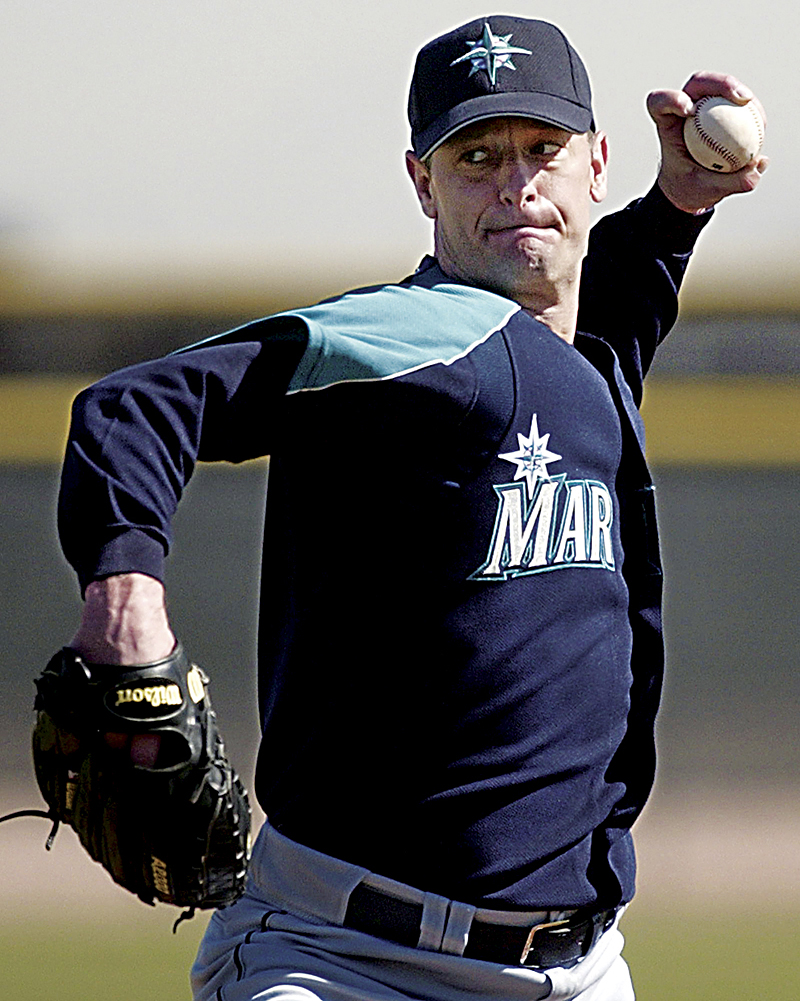Reifman found Ratliff through good, not-so-old-fashioned internet gumshoe’ery.If you followed the saga of Wired writer Evan Ratliff’s Vanish project, you probably already know the role played by Seattle resident Jeff Reifman. Ratliff’s experiment was this: He wanted to find out how hard it was to disappear in the digital age. It was a simple concept that required a ton of complicated work to execute.On August 15th the hunt began. With a $5,000 bounty from Wired on his head, Ratliff left San Francisco with a new identity (James Donald Gatz, Jay Gatsby’s alias), a few untraceable prepaid cell phones and Just for Men beard and mustache dye. Twenty five days later the game ended when Ratliff was spotted by the owner of Naked Pizza, a soon-to-be-franchised eatery in New Orleans. Ratliff was eventually undone by a food allergy (as a celiac sufferer, hunters knew he’d be in the market for the gluten-free pie that is Naked Pizza’s specialty), the need to reconnect with humanity (Ratliff dropped his guard in the final days in order to meet new people) and the dogged legwork of thousands of internet sleuths. The most effective of which was Reifman.Evan Ratliff prior to his “disappearance.”A former project manager for Microsoft, Reifman is no stranger to the Weekly. He’s contributed multiple times, most recently in 2005 when he wrote about a cover story about the challenge of making ethical investments. (Note to haters: On top of being an accomplished internet P.I., Reifman is also a millionaire.)Reifman’s already blogged about how he tracked down Ratliff. But we wanted to tell the story in our own words. So we called Reifman yesterday at his home in Seattle and asked him to walk us through it. Here’s what he said.Thanks to a grant from the Knight Foundation, Reifman had been hard at work on a Facebook application meant to deliver news to a younger audience. This summer’s Iranian revolution made him realize that he needed to find a way to have his app respond to events as they happened.”When the Vanish contest came up I thought this would be a good time for a test run,” he says. “I thought it would rapidly attract tens of thousands of readers around the internet. People who were tech savvy and active on social networks.”FacebookJames Donald Gatz, a.k.a. Ratliff in disguise.He was right. After a few days Reifman’s Vanish Team had hundreds of members. More importantly, he’d set a trap for Ratliff.As the administrator of the group, Reifman could see what Facebook users came and went. The editors at Wired who were feeding hunters with the occasional clue said Ratliff would be checking in on social networks related to Vanish.Thinking his target might have started a fake account, Reifman started looking for Vanish members with few friends. When he expanded his search, Reifman saw a face he recognized. A Facebook member named J. Donald Gatz.Gatz had 38 friends. He also had dark hair, a goatee and circular-framed glasses that made him look an awful lot like the guy id’d as Ratliff who was caught doing a man-on-the-street interview in Venice Beach.From there Reifman was able to find Ratliff as Gatz on Twitter. The account was password protected. But Reifman convinced one of Gatz’s followers to e-mail him every time a new update was posted.The Twitter feed was a win for Reifman. But after Gatz went silent it didn’t offer many clues.In order to compensate for the inactivity, Reifman devised a new plan. He started baiting Ratliff with what he calls a “Honeypot.” Promising to reveal important info about Ratliff, Reifman got his target to check the Facebook app multiple times, thus exposing his IP address and revealing his location.Reifman had such a good bead on Ratliff that an editor at Wired actually asked him to stop sending updates. If he heard any more , he said, he might slip up and compromise his writer’s location further by broadcasting the info to a wider audience.Ratliff hopped from Salt Lake City to Denver to Atlanta without being spotted. But things changed when he arrived in New Orleans.Reifman said he had a hunch Ratliff might stick around the Big Easy for a few days. A hunch proven correct when he saw Gatz’s Twitter account add a few local businesses, including Naked Pizza. Reifman e-mailed Jeff Leach, Naked Pizza’s tech proficient owner who, perhaps sensing what all the free publicity might do for his growing business, went above and beyond the call of duty. Leach circulated photos of a bald Ratliff (he’d long since shaved his head) to all of his employees. He staked one of them outside a rum factory that Ratliff was thought to want to tour. He even changed Naked Pizza’s system so as not to reject gluten-free orders that were out of the delivery area, on the off chance Ratliff would have a pie sent to him.”(Leach) told me ‘Gluten-free is 10% of our business and half of those are females, so if this guy orders a pizza we’ll get him,” says Reifman.He was right. Except that Ratliff never ordered a pizza. Instead he was spotted outside of a book reading Wired had offered Ratliff bonus money if he attended. Reifman, who was in contact with Naked Pizza multiple times on the day of the “capture,” was the one who alerted Leach that he might be spotted there.Leach ended up with the $5,000 prize to which he graciously (and correctly) offered Reifman half. (In the end it didn’t matter, as both donated their share to New Orleans-based charities.) Ratliff ended up with an amazing story. He wasn’t exactly thrilled that the chase ended just days before his one month deadline. But he was happy that Reifman, someone who employed technology to track his scent, was the one to end the search, rather than just some random guy on the street.”From just a storytelling perspective, I knew that it would be tremendously anticlimactic to be running around for weeks trying to elude all these pursuers, and then have a guy at the hot dog stand who’d seen me on TV say, ‘Hey, are you that guy?'” Ratliff writes in an e-mail.For his part, Reifman thinks the Vanish experiment tapped some people’s desire for more privacy in the digital age. But, in the end, it was “just a game.””A really interesting game that captured a lot of people’s attention,” he says. “Including mine.”
More Stories From This Author
Board recommends Dow Constantine as new Sound Transit CEO
In his 16th year as King County executive and on the Sound Transit Board; pay could be $675,000 annually
How to navigate the bird flu in Washington state
“This looks like it might be the new normal,” said Chris Anderson, Washington Department of Fish and Wildlife.
Measles detected in King County infant
The patient visited multiple locations around the county between Feb. 20 and Feb. 25, including Bellevue Square, Bothell, and Redmond.






